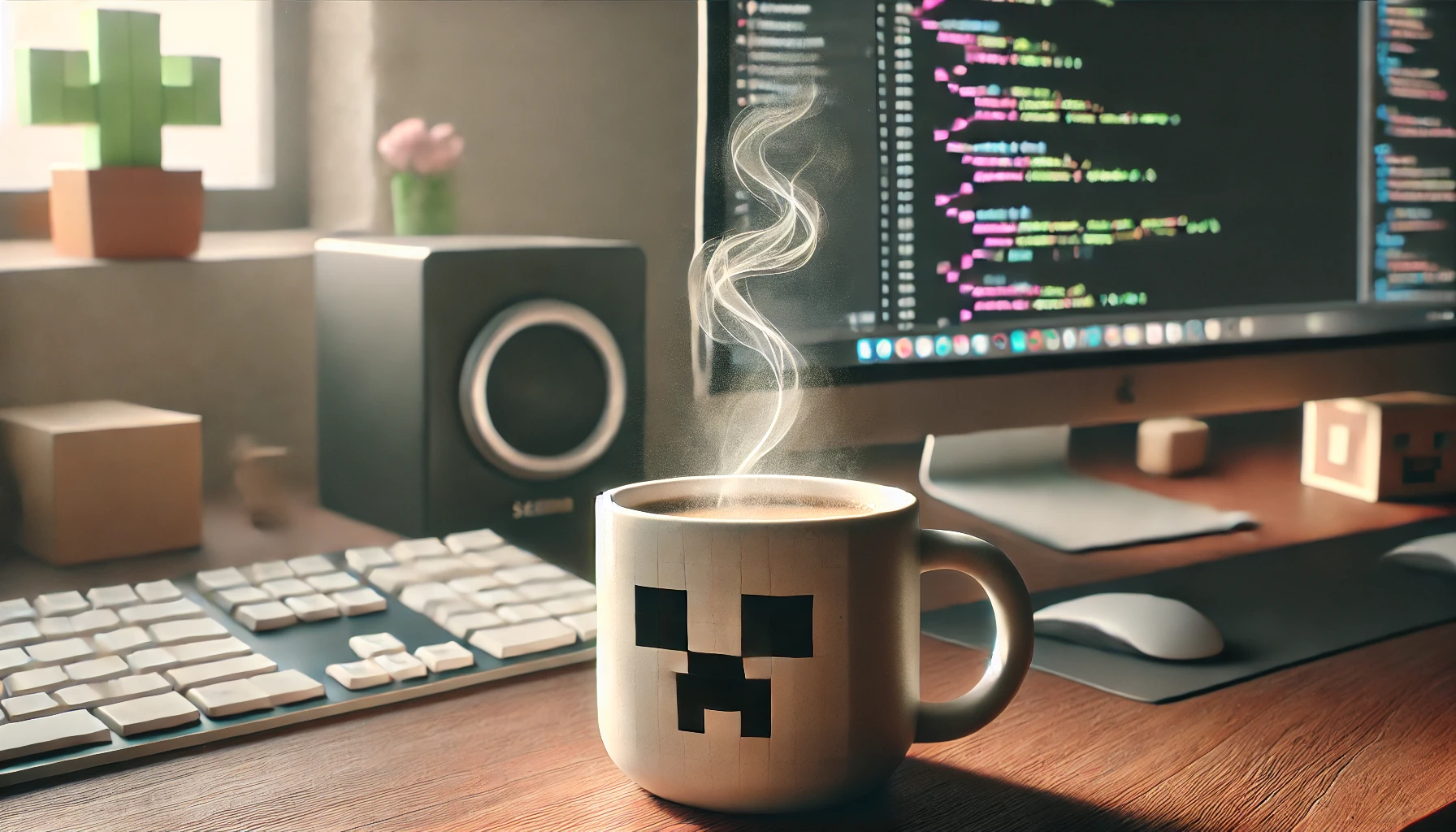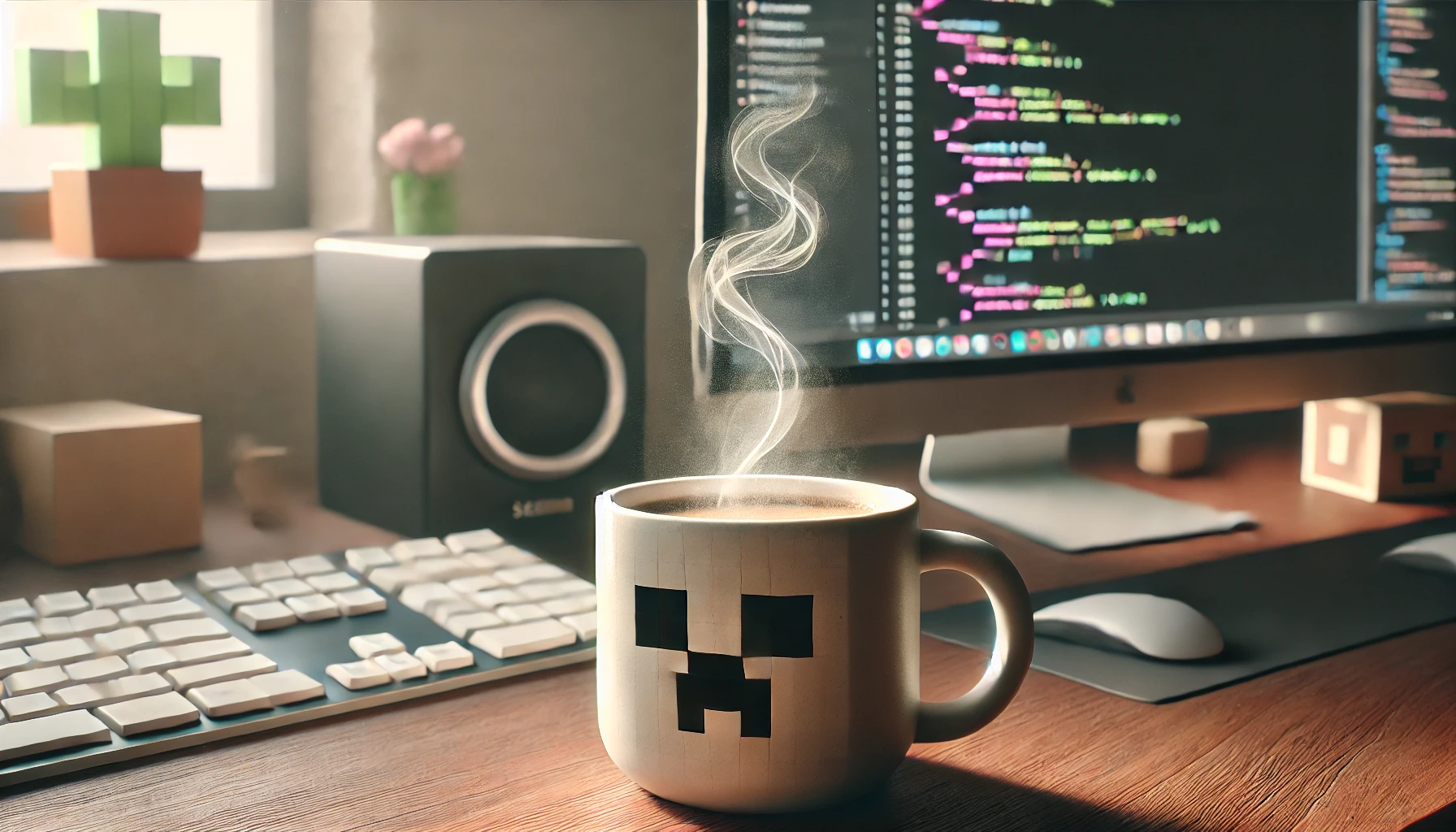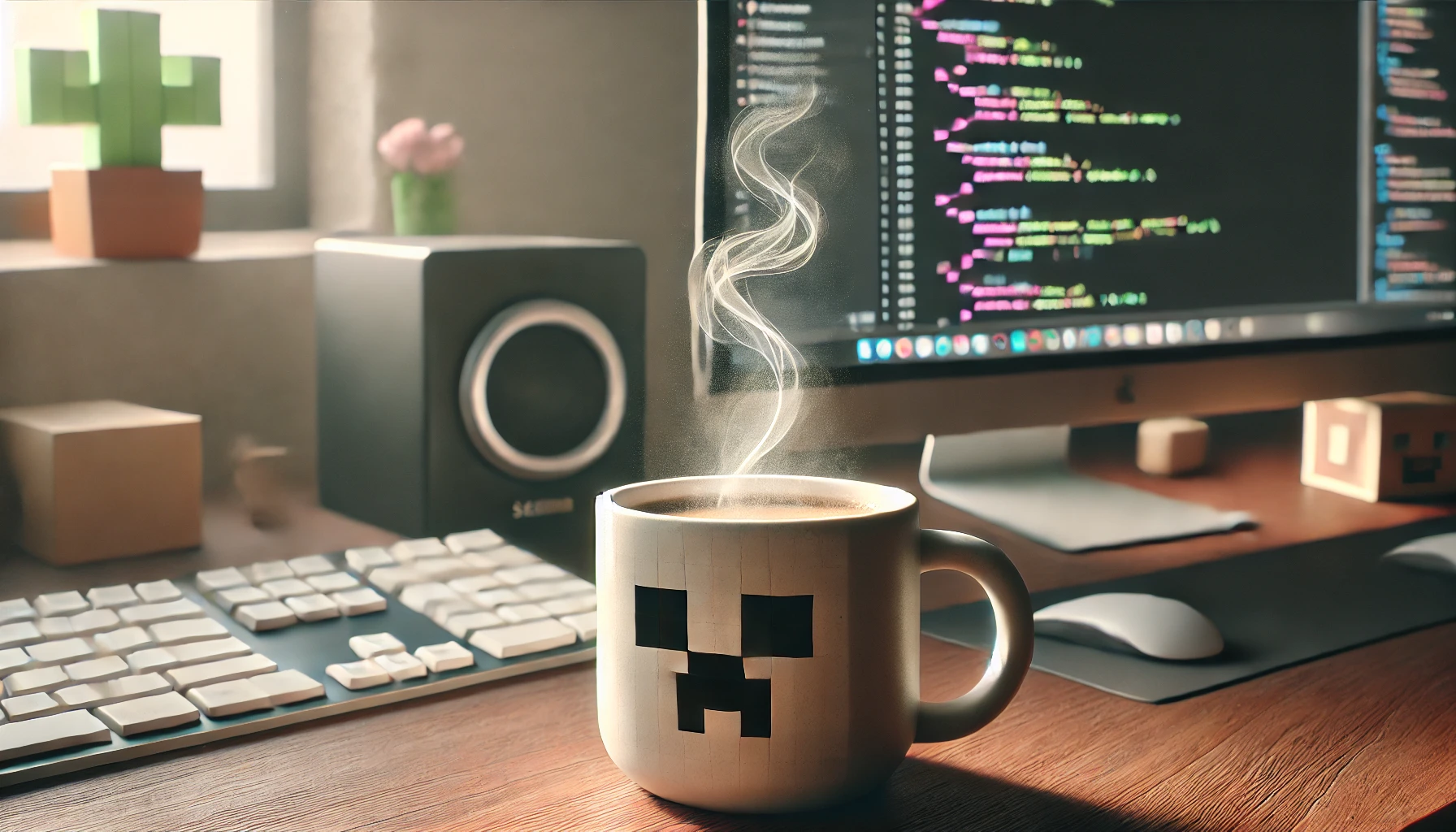
Coffee of the Week
Open-source AI, Nvidia chips, and Chinese kids coding the future
Hey tech folks! 🚀 Welcome to another edition of our weekly roundup, where I highlight the hottest news from the world of technology and artificial intelligence! This week is buzzing with news: revolutionary open-source models, China investing heavily in AI education for children, Nvidia's advances with its new chips, and much more. Prepare your coffee and let's dive into this sea of innovations that are shaping the future of technology!
Use of Gen AI for shopping increases by 1,200%
Data from Adobe's report on the use of generative AI in online retail. The numbers show a 1200% increase in traffic from AI tools, but purchases are not keeping pace. The report also highlights that visitors from AI spend more time on sites but convert less into sales.
It's still early to define a scenario, but the numbers bring up very interesting points. For example, if people arrive at the site through an AI recommendation, they tend to "rummage" more through the site, spending more time. This is an important piece of data, even if it doesn't translate into more sales, which still happens more in the traditional model (arriving directly at the product you want to buy). We need to wait for the next few months because the field is promising and things evolve very quickly!
Measuring AI's ability to complete long tasks
Meta researchers published a study showing that AI's ability to perform complex and time-consuming tasks is doubling every seven months since 2019. They measured the performance of AI agents on 170 software tasks, ranging from 2-second decisions to 8-hour projects, and observed an exponential increase in the ability to complete tasks successfully.
It is a very interesting study that shows the advancement of AI in more complex tasks, something that can have a very large impact in the future. If this growth rate continues, we will have AI agents capable of carrying out projects that today take weeks to be completed by humans. Of course, there is still a lot of discussion about whether this growth will continue or whether we will reach a plateau. But for now, the chart is impressive and gives us a glimpse into the future of AI.
Judge slams Star Trek's Data's poetry while ruling AI can't author works
A US judge ruled that AI cannot be the author of works protected by copyright, using the poetry of the character Data from Star Trek as an example. The case involves a computer scientist who tried to register a work created by AI but had the request denied.
According to the decision, for something to be eligible for copyright protection, it is necessary for human authorship to exist, something that AI does not possess. To illustrate the situation, the judge even mocked Data's poetry, comparing it to ChatGPT and stating that AI has not yet reached the level of intelligence necessary to be considered the author of a work. The decision generated debates about the future of artistic creation and the limits of artificial intelligence.
The Russo brothers revolutionized Hollywood once. Now they aim to do it again.
The Russo brothers, famous for "Avengers: Endgame," are betting on a high-tech studio to face artificial intelligence, with the aim of using it as a tool for artists, rather than a substitute.
The initiative seems promising, since creative and restless minds tend to drive technology forward, and not the other way around. In addition, they hired Dominic Hughes, formerly of Apple, to lead the creation of AI and language models for Apple News. They also criticize the use of AI by Silicon Valley companies in tasks that require exact answers. In other words, if the Avengers guys are in on this, it's good to keep an eye on it!
Tencent expands AI with open-source 3D generation tools
Chinese tech giant Tencent has launched a set of artificial intelligence tools to transform text and images into 3D visuals, with the aim of boosting Chinese growth in the generative AI field. The company launched five open-source models based on Hunyuan3D-2.0 technology, including "turbo" versions that promise to generate 3D visuals in up to 30 seconds, while maintaining high accuracy and quality.
Tencent is not kidding around and wants to show that it is also good in the world of AI. It seems that the competition between Chinese companies is becoming increasingly fierce, with each trying to outperform the other in terms of performance and cost. And it's not just Tencent that is in this race, other companies are also investing heavily in text-to-3D and image-to-3D models. If you intend to continue boycotting Chinese products and services out of pure ideology or xenophobia, I strongly recommend that you review your positions, or you will be left behind.
China wants 6-year-olds to learn AI by 2030
China is encouraging its schools to integrate artificial intelligence into the curricula of children from the age of 6, with the aim of training an AI-native generation by 2030. The idea is to prepare future citizens for an increasingly automated and technological world.
The initiative has generated debates about the ideal age to start learning about AI and the possible impacts on child development. Some experts fear that early exposure to technology could harm the development of social and creative skills, while others argue that it is important to prepare children for the future and give them the necessary tools to thrive in the age of AI. My opinion is somewhere in between.
China announces labeling of generic AI to cull disinformation
The Cyberspace Administration of China, together with three other agencies, announced new rules requiring service providers to label AI-generated material explicitly or through metadata.
The new law aims to help users identify disinformation and hold service providers accountable for labeling content, with the intention of reducing the misuse of AI-generated content. Will this measure catch on and will other countries follow suit? Only time will tell!
From courts to crisis lines, Chinese authorities embrace DeepSeek
After DeepSeek's founder shook hands with Xi Jinping, authorities across China are showing how they use the company's technology to draft legal opinions, propose treatment plans in hospitals, and answer questions on government hotlines.
While it is a success for DeepSeek, this proximity to the Chinese government can be a double-edged sword. Some say that this type of news is music to the ears of politicians, fueling narratives that DeepSeek is in the hands of the Chinese government and that it steals data from the West to feed the communist spy machine. Furthermore, the government's own interest and approach can elevate the company but at the same time attract more attention.
Tech companies are going back to prioritizing in-person interviews
A computer science student created a tool that helps candidates bypass job interviews using AI, which has led some companies to consider the return of in-person interviews. The tool is almost undetectable and allows candidates to answer questions more effectively and quickly, without the interviewer realizing they are cheating.
Despite the controversy, the tool has gained popularity among programmers who are frustrated with traditional selection processes and want to show their skills more efficiently. It remains to be seen whether companies will be able to find ways to combat this practice and ensure that candidates are evaluated fairly. On the other hand, this closes doors to many candidates who are outside the United States, as they would now have to travel there in person to apply for a position.
Meta celebrates 1 billion Llama downloads
Llama has helped everything from Spotify make more personalized music recommendations to small businesses close deals.
And it's no wonder, right? Llama has been used by people around the world to innovate and create new opportunities. It's as if Andrew Ng (that famous AI guy) is spreading the word and bringing knowledge to the world.
Mistral Small 3.1: the new open-source model that promises to revolutionize AI
Mistral AI announced Mistral Small 3.1, an open-source model that is already making waves, with improvements in text comprehension and multimodality, as well as a context window of up to 128k tokens. And the best part? It performs well in inference speed, with 150 tokens per second.
Mistral Small 3.1 has everything to give Google's models and even the GPT-4o Mini a run for their money, especially if you're looking for something faster and with lower latency. People are even betting that it will become the darling of those who like a powerful open-source tool.
Nvidia launches Blackwell Ultra, Dynamo. outlines roadmap through 2027
Nvidia introduced Blackwell Ultra, focused on improving both training and inference, and Dynamo, an open-source framework for optimizing the AI reasoning process. The article also indicates that the Blackwell Ultra family of chips will begin to be available to the market this year. They can be used for premium AI services that require more speed. There will also be a more robust version that is 8 GPUs on a blade, a board with a rack of 72 chips.
Nvidia is betting heavily on its annual roadmap, focusing on scaling and optimizing its systems. Discussions focus on how NVIDIA is "doubling down" on its platform with Blackwell Ultra, including hardware and software. The company doesn't want us to be surprised in May with the news.
Nvidia announces new Llama Nemotron AI reasoning models
Nvidia is betting heavily on AI agents, launching new Llama Nemotron models and tools to boost the development of this area. The idea is to create a complete infrastructure so that AI agents can perform tasks autonomously and efficiently.
The announcement of the new Nvidia models was a great move, showing that the company is investing heavily in hardware and software for AI. NVIDIA is really striving to be at the forefront of AI, launching increasingly powerful chips and increasingly intelligent language models. The problem is that prices grow in line with the capacity of the new models...
Nvidia announces Blackwell Ultra and Vera Rubin AI chips
Nvidia announced its new chips for building and deploying artificial intelligence models at its annual GTC conference. CEO Jensen Huang unveiled the Blackwell Ultra, a family of chips that will be released this year, and the Vera Rubin, the company's next-generation GPUs, scheduled for release in 2026.
It is clear that these announcements are a test of Nvidia's new annual release cadence, which strives to announce new chip families annually. Before the AI boom, Nvidia released new chip architectures every two years. Now it's almost every two weeks.
For Google Deepmind CEO, AI that can match humans may emerge 'in five to ten years'
In an interview with CNBC, Demis Hassabis, CEO of Google DeepMind, believes that, despite current advances, Artificial General Intelligence (AGI) is still a distant goal, despite having a more conservative view compared to other colleagues in the industry.
The DeepMind CEO seems more down-to-earth, giving a longer timeframe for the arrival of AGI, while other industry leaders are betting on shorter deadlines. An interesting view, coming from a scientist who has been in the market for a long time and not just a mere marketer. The business is to be cautious and wait for the next chapters of this technological soap opera.
Nvidia adopts SynthID watermark standard
NVIDIA and Google join forces to drive AI, from robots that grab things to the discovery of new medicines. The partnership promises to democratize access to AI tools, accelerate the development of physical AI, and transform sectors such as health, manufacturing, and energy.
This move is interesting to strengthen both sides. NVIDIA, with its firepower in hardware, and Google, with its expertise in AI, come together to create a future where AI is present in everything, from robots in factories to more precise medical diagnoses. This strategic partnership can open doors to significant advances and consolidate the position of both companies in the AI market.
China mandates labeling of AI-made content
The Chinese government is telling people to label content generated by artificial intelligence, either by placing an explicit seal or hiding it in the metadata. The idea is to make clear what is the work of the machine and what is human production.
It seems that China is playing it safe, right? But the reality is that everyone is in this vibe, trying to find a way to mark what is AI so that it doesn't become a confusion.
Google brings a 'canvas' feature to Gemini, plus audio overview
Google has added to its Gemini chatbot a tool called Canvas, similar in concept to OpenAI's Canvas tool for ChatGPT and Anthropic's Artifacts, which offers Gemini users an interactive space where they can create, refine, and share writing and coding projects. In addition, there is also NotebookLM's audio overview for Gemini, which creates realistic podcast-style audio summaries of documents, web pages, and other sources.
It was natural that this idea from Anthropic's Arthurflex was so good that everyone was going to copy it, and that's exactly what happened: Google implemented it with the name Canvas and it's practically the same. The tool is so powerful that it will become part of everyone's daily lives, allowing the editing and viewing of texts and codes, all in one place. In addition, the audio overview is an excellent way to consume content more dynamically.
Google prepares partnership with Taiwan's MediaTek on next AI chip, information reports
Alphabet's Google is preparing a partnership with Taiwan's MediaTek to develop the next version of its AI chips, the Tensor Processing Units (TPUs), which will be produced next year. Despite this, Google maintains its collaboration with Broadcom, with whom it has worked exclusively on AI chips in recent years. MediaTek was chosen due to its strong relationship with TSMC and for offering lower costs per chip compared to Broadcom.
The chip market is becoming more and more interesting. Now Google and MediaTek are plotting something to end the dependence on Nvidia. Will it happen? The future will tell!
Assistant experience on mobile is upgrading to Gemini
Google Assistant is giving way to Gemini on mobile phones, bringing a new era of AI-powered assistance. The update, which is already available in more than 40 languages and 200 countries, promises a more personalized and capable experience, with features like multimodal conversations and Deep Research.
The change reflects the evolution of generative AI and Google's ambition to create a smarter and more useful personal assistant. It remains to be seen whether this transition will be smooth for users and whether Gemini will actually surpass its predecessor. I'm excited for this news to arrive on my Android.
OpenAl announces next-generation audio models in API
OpenAI has just launched a new batch of turbocharged audio models with the ability to create more powerful and customizable voice agents. And it doesn't stop there: these models also perform extremely well in transcription and promise to put on a show in noisy environments and with challenging accents, in addition to allowing the creation of voices with different styles and emotions. OpenAI is going all out in the world of communication between humans and machines!
The launch of OpenAI's new audio models, with notable improvements in transcription accuracy and voice customization, represents a significant advance in the development of more sophisticated voice agents. The company is increasingly focused on offering tools that not only understand human language but also transmit it naturally and expressively, which opens up a range of possibilities for applications in various areas, such as customer service and education. The expectation is that, with these new features, the interaction between humans and machines will become even more intuitive and efficient, opening doors to a future where technology adapts more and more to the needs and expectations of users.
Y Combinator CEO says AI is making investments yield more
Y Combinator CEO Garry Tan revealed to CNBC that current startups are growing faster and with more revenue than ever before, and this is due to artificial intelligence, which allows companies to create with fewer people and raise less capital.
AI is changing the game for those who are starting out, right? With 95% of the code being done by AI, you can assemble a lean team and not have to worry so much about raising money. It's a great opportunity for people who understand technology but don't want to face the challenges of a large company.
Claude can now search the web
Claude now has access to the internet, allowing it to provide more up-to-date and relevant answers, with direct citations to facilitate verification of sources. This update, however, is only available to paid subscribers in the United States, with a promise of expansion to more countries and free plans soon.
Finally! The functionality is excellent, as Claude will be able to access real-time information, such as recent events, and reduce the likelihood of hallucinations. However, the limited availability is a bucket of cold water, as it restricts access to many users, especially here in Europe. The lack of clear information about the time it will take for the functionality to expand also generates uncertainty.
Paper: DAPO - An Open-Source LLM Reinforcement Learning System at Scale
The DAPO team launched an open-source system to enhance LLMs with reinforcement learning, aiming at complex reasoning. The system reaches 50 points on the AIME 2024 with a Qwen2.5-32B base model, and they also released the training code and a carefully crafted dataset!
The developers believe that, with the open-source initiative, more people can benefit and reproduce the results, boosting research in LLMs. They emphasize that the work comes at a time of great rise of AI and language models, but it is still important to pay attention to the misuse of the tools.
Paper: Transformers without Normalization
The study proposes to simplify Transformers, dispensing with normalization layers and using the dynamic hyperbolic tangent technique, which promises faster and more efficient training of the models.
The proposal of a new paper aims to optimize the architecture of Transformers, one of the pillars of AI, removing the normalization layers and adopting a different technique. This change aims to accelerate training and inference, and can give more freedom during the process.
And that's all for today, folks! I hope you enjoyed this trip through the world of technology. As you can see, AI continues at full steam, with companies and countries racing not to be left behind in this revolution. From China wanting to teach AI to little kids to the Russo brothers of Hollywood betting on technology, it is clear that artificial intelligence is changing all sectors. Stay tuned for the next edition, and in the meantime, continue to explore this fascinating universe of technology! Until next time! 👋


